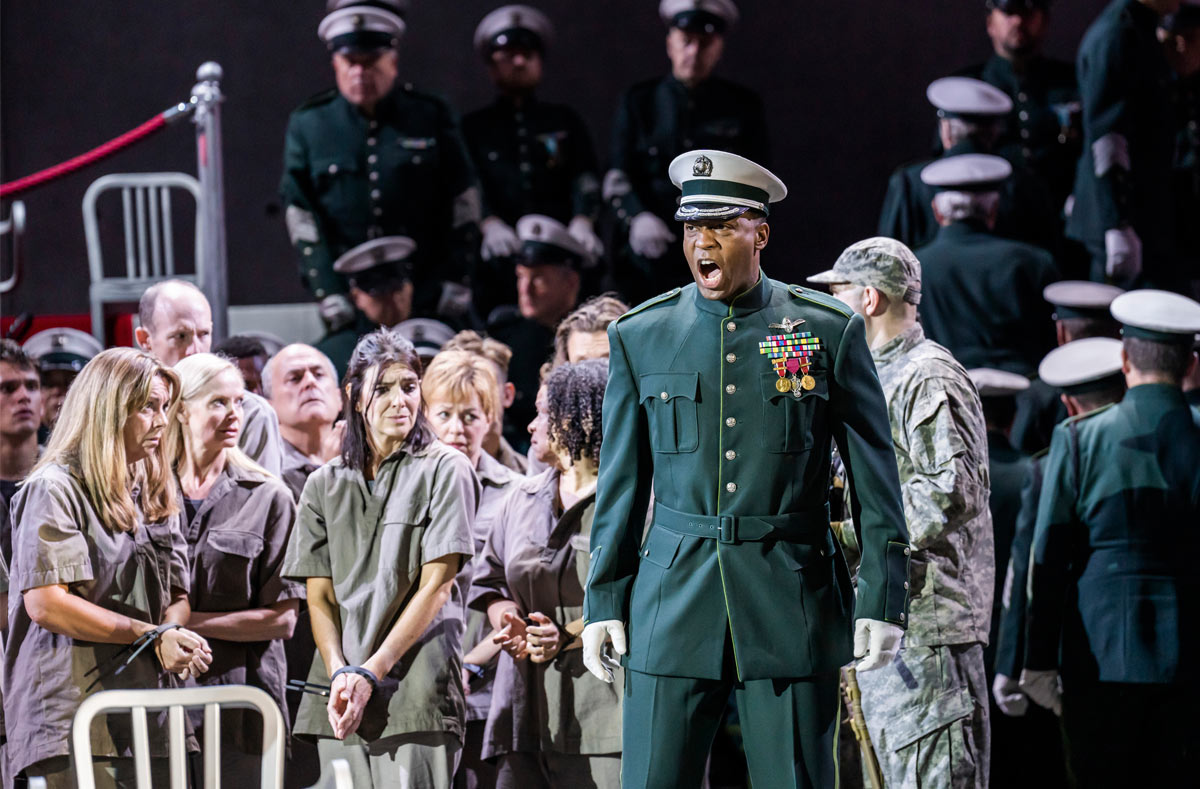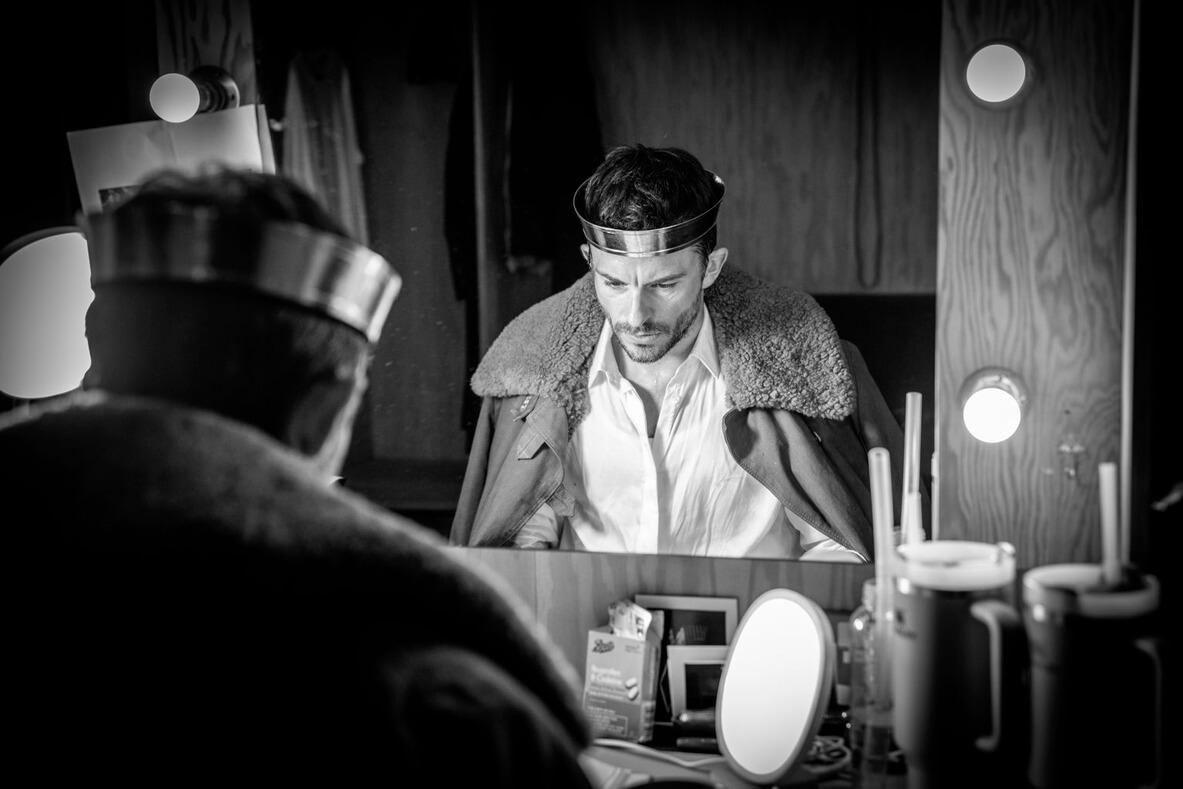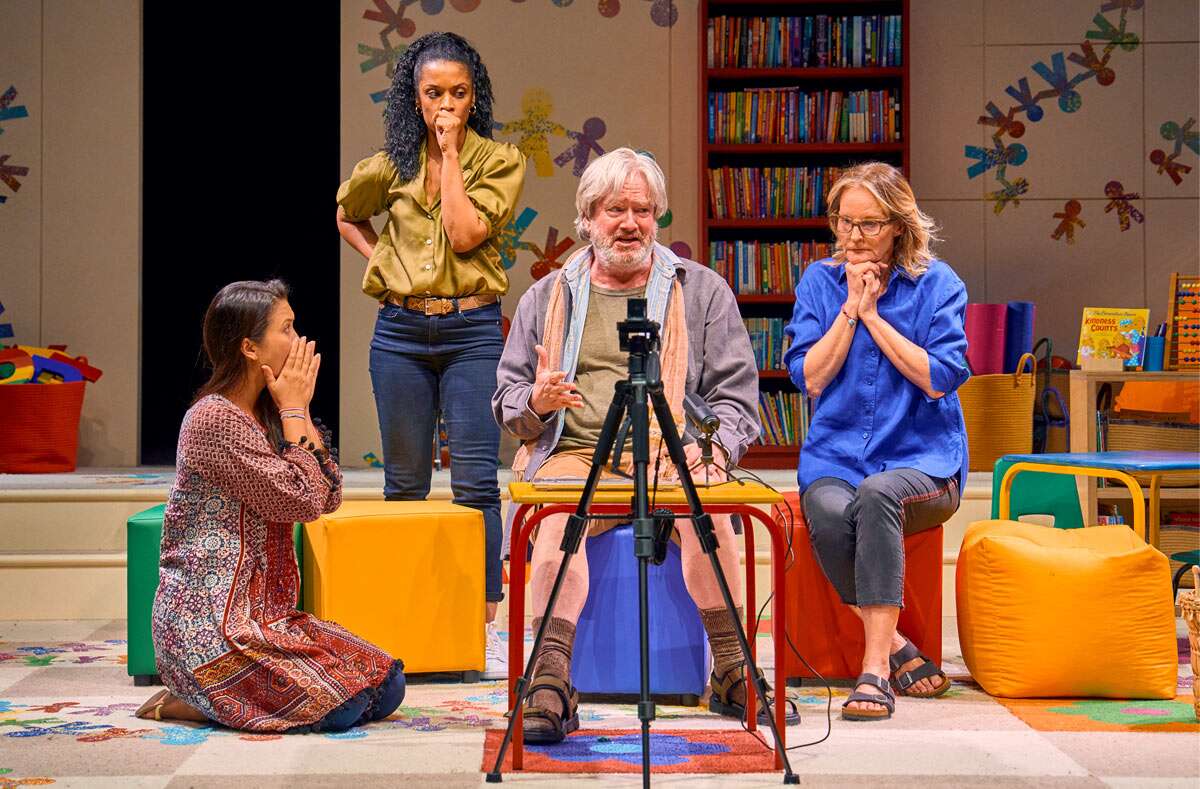General Radamés (Francesco Meli) leads an attack on the enemy hoping to win the hand of his lover Aïda (Elena Stikhina) the enslaved handmaiden to Princess Amneris (Agnieszka Rehlis) who herself has the hots for General Radamés. To complicate this awkwardly unbalanced trinity, when he is successful in battle and returns with King Amonasro of Ethiopia (Ludovic Tézier) in chains, it transpires his captive is Aïda’s father. Meanwhile in delight at his victory, the King of Egypt (In Sung Kim) makes political capital out of his new hero by promising him his daughter’s hand in marriage, thereby unwittingly setting-off a chain of calamitous events.
Aïda is an opera of two very distinct halves, the first filled with anxious optimism, love, disappointment, victory, defeat, suffering, suspicion, reward and triumphant marches. It gives a director such as Carsen (and given the sheer number of bodies required to create the spectacle, the chorus director William Spaulding) much to work with, and much work to do, both from the perspective of actors’ performance and visual placement. Here, the overtly military focus has given rise to a set where palaces/bunkers are of concrete grey and costumes predominantly of camouflage green hues, both benefiting from dramatic red accents which are visually arresting, stunning (and thankfully devoid of the hideous gold trappings much favoured in such Middle Eastern locations).
Ramfis (Solomon Howard) who is ordinarily a High Priest, here appears as an intimidating senior military attaché whilst the rest of the junta wouldn’t have appeared out-of-place in Mubarak’s Egypt. When he presents the General with the icon which will lead Egypt to victory in battle, here it manifests as a Kalashnikov assault rifle. Tightly choreographed set pieces involve the enormous chorus and dancers who have been drilled into a marching/fighting machine equal to any found on an equivalent parade ground or battlefield. Aside from the assault rifle distribution scene, the 2 other notable unsung orchestral interludes give rise to an inspection of the guard by the king and the laying of the victory banquet table. Both are inspired choices and add considerably to the audience’s enjoyment — if only due to the excited nervousness which comes from anticipating whether every chorus member will have managed to reach his/her designated place by the last note.
Robert Carsen was visible pressing palms in the stalls before curtain-up and must have been pleased with the phenomenal end result by the interval. Certainly anyone witnessing the production on opening night would have confidently expected a shower of awards and 5 star reviews at that stage.
This reviewer just wishes (for the entire company’s sake) that Verdi had not written the second half. For any optimist and even most romantics, it is simply an excrutiating hour of misery, blame, recrimination and human stupidity. There are few redeeming moments and the final tomb scene — which here is actually an underground bomb storage depot — is one of the most foolishly morose to ever feature in the work of a genius as notable and loved as Guiseppe Verdi, (so we must lay the blame squarely at the feet of his librettist Antonio Ghislanzoni).
In closing it is worth mentioning newcomer Andrés Presno whose brief appearance as the Messenger presaged a great future. Who knows, he may be delivering his own Radamés in the not-too-distant future.
5 stars first half and 2 stars second. On balance it is still one of the best operas you’re likely to see this year, GO (but sneak out at the interval, or stay put, close your eyes and just listen to the superlative music delivered by an orchestra at the top of its game.

 (RAMFIS) Soloman Howard in Aida at the Royal Opera House © Tristram Kenton
(RAMFIS) Soloman Howard in Aida at the Royal Opera House © Tristram Kenton

